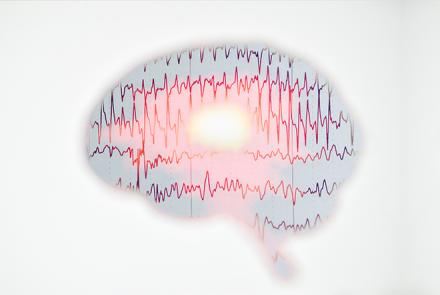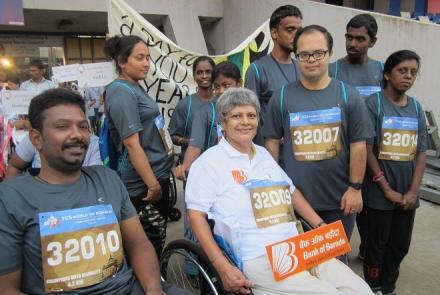
Dr. Jayanti Mani, Consultant – Neurology at Kokilaben Dhirubhai Ambani Hospital, addresses the concern that women with epilepsy cannot have children and breastfeed their baby. With the correct advice on medications, pre-planned pregnancy and proper monitoring most women with epilepsy can safely have normal children, she says.
Is it safe for women with epilepsy to get pregnant?
With advances in epilepsy therapies and comprehensive care by neurologists and obstetricians, it is now safer than ever for women with epilepsy (WWE) to get through pregnancy. More than 90 per cent of women with epilepsy who are on anti-epileptic drugs (AEDs) have a normal pregnancy and give birth to healthy babies. However, epilepsy and AEDs do carry some risks to the baby. Babies born to mothers with epilepsy are at marginally higher risk that those born to mothers without epilepsy. But it is possible to identify these higher risk pregnancies early and intervene appropriately with modern medical technology. Safe labour and delivery and care for the baby can be provided in the high risk cases at well equipped hospitals.
All pregnancies in mothers with epilepsy have to be managed as high risk cases at well equipped obstetric centres.
अब हिंदी में पढ़ें: यदि आपको एपिलेप्सी है, तो गर्भावस्था के लिए क्या सावधानियां लेनी चाहिए?
Does epilepsy make it harder for women to conceive? Do they have an increased risk of infertility?
It is a myth that epileptic women are infertile or cannot bear children. While it is true that fertility rates in women with epilepsy are slightly lower at 85% of the general population, a significant cause of this may be social. Some of the possible medical reasons are higher rates of polycystic ovary syndrome and some hormonal factors which make it difficult for women to conceive. Another perhaps more significant cause is socioculltural, related to social myths, stigma and fear that makes women with epilepsy avoid pregnancy.
Are women with epilepsy more predisposed to develop polycystic ovarian syndrome (PCOS) leading to reproductive disorders?
Reproductive endocrine dysfunction in women with epilepsy is an important issue. PolyCysticOvary Syndrome (PCOS) has a prevalence ranging from about 4% up to 18% in the general female population, and from 10% to 20% in populations of women with epilepsy. Possible reasons are multifactorial, especially hormonal issues.
Certain medications used to treat epilepsy especially Valproate, are related with weight gain and increased androgen levels, these are features of PCOS. A clear causal relationship between PCOS and antiseizure medications has not been established though.
How do women manage their seizures during pregnancy?
Prevention of seizures is of paramount importance and hence it is imperative that pregnancy anti seizure medications are initiated before conception and continued throughout pregnancy. Medications should never be stopped abruptly under any circumstances, lest it leads to catastrophic seizures. Regular visits to the neurologist will ensure that doses are titrated appropriately. The pregnant mother should get adequate sleep. Doses should not be stopped abruptly. Regular follow up visits with neurophysician so that medications will be monitored and optimised. In the unfortunate event of a seizure, it is important to be aware that harm to the foetus is unlikely unless the seizure is prolonged or the mother has physical injury. Overall, managing seizures in the pregnant woman involves immediate first aid as in any other person having a seizure.
Could antiepileptic drugs (AEDs) have any impact on the baby?
AED treatment during pregnancy is a balancing act between harmful effects of the medicine on the foetus (teratogenic) and maintaining maternal seizure control. The main concerns are physical defects in the baby (teratogenesis) and cognitive development of the baby. More information is now available on safe and unsafe drugs. Being on single or fewer drugs is safer then multiple drugs. Drug dosage has also been shown to be relevant in the case of some drugs. The period of maximum risk is between conception and first 3 months of pregnancy. Hence pre-conception counselling is important and drug modification, if required, is done at that stage. Medicines for seizures should not be abruptly stopped or changed during pregnancy without medical advice.
Do women with epilepsy have higher risk of having a child with birth defects or developmental problem?
In the general population there is a 2%-3% chance that a child will have a birth defect. In women with epilepsy, this risk goes up 4- 7% with a single medication and up to 15% with multiple medications. 85% of WWE on antiseizure medications have normal babies. This risk is especially high in the first 3 months of pregnancy. Developmental problems including intelligence and behaviour may be marginally affected in children of mothers on Valproate, and this effect is also dose dependent and persists throughout pregnancy.
Does pregnancy contribute to worsening seizure control?
Seizure frequency declines or remains the same in the majority of women during pregnancy. Seizure frequency may increase in a small percentage of women during pregnancy. A number of factors have been suggested as possible triggers for seizures, including hormone changes, water and sodium retention, stress, and decreasing blood levels of antiepileptic medications. It is noted that women who are seizure free for the 9 months prior to pregnancy have a very high chance of remaining seizure free during pregnancy. Not enough sleep and not taking medications as prescribed are some of the most important factors that can worsen seizures. WWE should consult her neurologist so that medications and their doses are optimized. Moreover taking vitamin supplement and folic acid is important. Smoking should be avoided. Eat a sensible and balanced diet that will maintain optimum weight will help the mother and baby.
Should women with epilepsy be encouraged to breastfeed their child?
Breastfeeding is an integral and important part of the experience of motherhood. It helps in building the mother and baby bond during the early months. According to the American Academy of Neurology and the American Academy of Paediatrics women with epilepsy taking AEDs or seizure medications can breastfeed. However during breastfeeding the baby will continue to be exposed to the seizure medication in varying concentrations depending on the prescribed AED. Usually this is only a small amount and it rarely causes any additional problems, considering that the baby has been exposed to the medication during the pregnancy via the placenta. It is recommended that the mother should try and take the medicine at the beginning of the baby's longest sleep interval, preferably right after the bedtime feeding. This is recommended only if the medicine is taken once a day. However, if the medicines are taken more than once a day, breast-feed the baby immediately before taking the dose. That's when the level is likely to be lowest. Supplementing breastfeeding with formula at some feedings could also be considered. The mother may nurse the baby just prior to her scheduled daily medicine dose, and thus minimise risk of medication exposure to the newborn via breastfeeding.
What are some of the precautionary measures women with epilepsy should follow to minimize risks and ensure normal pregnancy?
- Pre-conception counselling by a neurologist to ensure safe medication choice and optimal seizure control prior to conception.
- Planned pregnancy - woman with epilepsy should ideally consult her neurologist while planning for pregnancy.
- Regular daily folic acid supplementation while planning for a baby and during pregnancy.
- Compliance to antiepileptic - Stopping medicine increases the risk of having breakthrough seizures. Having a seizure during pregnancy, could be more harmful than the effects of AEDs for the unborn baby.
- Foetal screening- for anomalies with blood tests and sonographic evaluation at the appropriate intervals for early identification of any foetal anomalies.
- Vitamin supplements are recommended by the doctor to be taken as prescribed.
- Lack of sleep and stress are major seizure triggers and this should be avoided in pregnancy.
- At time the doctor may recommend that the blood levels of the medicines be monitored during the pregnancy.
- The delivery should be planned with the obstetrician in a well equipped centre with facilities to monitor the baby during and after delivery.
What are the myths and misconceptions surrounding women with epilepsy and pregnancy?
Myth – A woman with epilepsy on seizure medicines cannot safely have children as medicines harm the baby.
Fact –With the correct advice on medications, pre planned pregnancy and proper monitoring most WWE can safely have normal children
Myth – If the mother has epilepsy the baby will also always have epilepsy.
Fact – Only in some specific types of epilepsy where multiple members of the family have seizures does the risk of epilepsy in off springs of WWE increase. Most women with epilepsy would not pass on their epilepsy trait to their children.
What is the approximate estimate of women with epilepsy in reproductive age group in India?
In India, about 5.5 million people have epilepsy. 2.5 million of them are women and 1.3 million of these women with epilepsy (WWE) belong to the childbearing age.
(Dr. Jayanti Mani has set up the Epilepsy Programme at Kokilaben Hospital. She has expertise in the medical management of all the patients with seizures and epilepsy and also the selection of patients who will benefit from epilepsy surgery. She has been part of Kokilaben Hospital since 2009 and reviews over 4000 patients of epilepsy every year.)
















